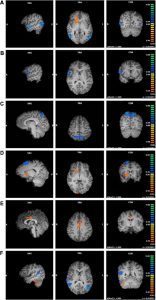Lower College Student Stress Levels and Increase Self-Compassion with a Mindfulness Mobile App
By John M. de Castro, Ph.D.
“mindfulness intervention can help reduce distress levels in college students during a stressful exam week, as well as increase altruistic action in the form of donating to charity.” – AMRA
In the modern world education is a key for success. Where a high school education was sufficient in previous generations, a college degree is now required to succeed in the new knowledge-based economies. There is a lot of pressure on students to excel so that they can get the best jobs after graduation. This stress might in fact be counterproductive as the increased pressure can actually lead to stress and anxiety which can impede the student’s physical and mental health, well-being, and school performance. It is, for the most part, beyond the ability of the individual to change the environment to reduce stress, so it is important that methods be found to reduce the college students’ responses to stress; to make them more resilient when high levels of stress occur.
Mindfulness training has been shown through extensive research to be effective in improving physical and psychological health and particularly with the physical and psychological reactions to stress and resilience in the face of stress. The vast majority of the mindfulness training techniques, however, require a trained therapist. This results in costs that many college students can’t afford. In addition, the participants must be available to attend multiple sessions at particular scheduled times that may or may not be compatible with their busy college schedules and at locations that may not be convenient. As an alternative, Apps for smartphones have been developed. These have tremendous advantages in decreasing costs, making training schedules much more flexible, and eliminating the need to go repeatedly to specific locations. But the question arises as to the effectiveness of these Apps in inducing mindfulness and reducing stress levels in college students.
In today’s Research News article “Efficacy of the Mindfulness Meditation Mobile App “Calm” to Reduce Stress Among College Students: Randomized Controlled Trial.” (See summary below or view the full text of the study at: https://www.ncbi.nlm.nih.gov/pmc/articles/PMC6614998/), Huberty and colleagues recruited stressed college students and randomly assigned them to either a wait-list control condition or to receive 8 weeks of mindfulness training including 10 minutes of meditation per day via a smartphone app (“Calm”). They were measured before and after training and 4 weeks later for perceived stress, mindfulness, self-compassion, and health behaviors including sleep disturbance, alcohol consumption, physical activity, and fruit and vegetable consumption.
They found that in comparison to baseline and the wait-list control group, the groups that received the smartphone app mindfulness training had significantly higher levels of self-compassion and mindfulness, including all facets of mindfulness, and significantly lower levels of perceived stress with moderate to large effect sizes. They also found that these benefits persisted 4 weeks after the end of training.
The findings of strong effects are important as they suggest that the smartphone app produces effects similar to those of in person trainings on perceived stress and self-compassion. These are important benefits for college students, helping to relieve their stress and hopefully improve their performance in college. Additionally, smartphone apps can be distributed widely at low cost and practice can occur at the convenience of the participant. So, these apps may be a vehicle to expand the benefits of mindfulness practice to not only college students but also to the wider population.
So, lower college student stress levels and increase self-compassion with a mindfulness mobile app.
“studies have demonstrated that mindfulness can be an effective skill for reducing anxiety and stress, controlling attentional distractions and improving overall psychological well-being.” – Braver
CMCS – Center for Mindfulness and Contemplative Studies
This and other Contemplative Studies posts are also available on Google+ https://plus.google.com/106784388191201299496/posts and on Twitter @MindfulResearch
Study Summary
Huberty, J., Green, J., Glissmann, C., Larkey, L., Puzia, M., & Lee, C. (2019). Efficacy of the Mindfulness Meditation Mobile App “Calm” to Reduce Stress Among College Students: Randomized Controlled Trial. JMIR mHealth and uHealth, 7(6), e14273. doi:10.2196/14273
Abstract
Background
College students experience high levels of stress. Mindfulness meditation delivered via a mobile app may be an appealing, efficacious way to reduce stress in college students.
Objective
We aimed to test the initial efficacy and sustained effects of an 8-week mindfulness meditation mobile app—Calm—compared to a wait-list control on stress, mindfulness, and self-compassion in college students with elevated stress. We also explored the intervention’s effect on health behaviors (ie, sleep disturbance, alcohol consumption [binge drinking], physical activity, and healthy eating [fruit and vegetable consumption]) and the feasibility and acceptability of the app.
Methods
This study was a randomized, wait-list, control trial with assessments at baseline, postintervention (8 weeks), and at follow-up (12 weeks). Participants were eligible if they were current full-time undergraduate students and (1) at least 18 years of age, (2) scored ≥14 points on the Perceived Stress Scale, (3) owned a smartphone, (4) were willing to download the Calm app, (5) were willing to be randomized, and (7) were able to read and understand English. Participants were asked to meditate using Calm at least 10 minutes per day. A P value ≤.05 was considered statistically significant.
Results
A total of 88 participants were included in the analysis. The mean age (SD) was 20.41 (2.31) years for the intervention group and 21.85 (6.3) years for the control group. There were significant differences in all outcomes (stress, mindfulness, and self-compassion) between the intervention and control groups after adjustment for covariates postintervention (all P<.04). These effects persisted at follow-up (all P<.03), except for the nonreacting subscale of mindfulness (P=.08). There was a significant interaction between group and time factors in perceived stress (P=.002), mindfulness (P<.001), and self-compassion (P<.001). Bonferroni posthoc tests showed significant within-group mean differences for perceived stress in the intervention group (P<.001), while there were no significant within-group mean differences in the control group (all P>.19). Similar results were found for mindfulness and self-compassion. Effect sizes ranged from moderate (0.59) to large (1.24) across all outcomes. A significant group×time interaction in models of sleep disturbance was found, but no significant effects were found for other health behaviors. The majority of students in the intervention group reported that Calm was helpful to reduce stress and stated they would use Calm in the future. The majority were satisfied using Calm and likely to recommend it to other college students. The intervention group participated in meditation for an average of 38 minutes/week during the intervention and 20 minutes/week during follow-up.
Conclusions
Calm is an effective modality to deliver mindfulness meditation in order to reduce stress and improve mindfulness and self-compassion in stressed college students. Our findings provide important information that can be applied to the design of future studies or mental health resources in university programs.
https://www.ncbi.nlm.nih.gov/pmc/articles/PMC6614998/









